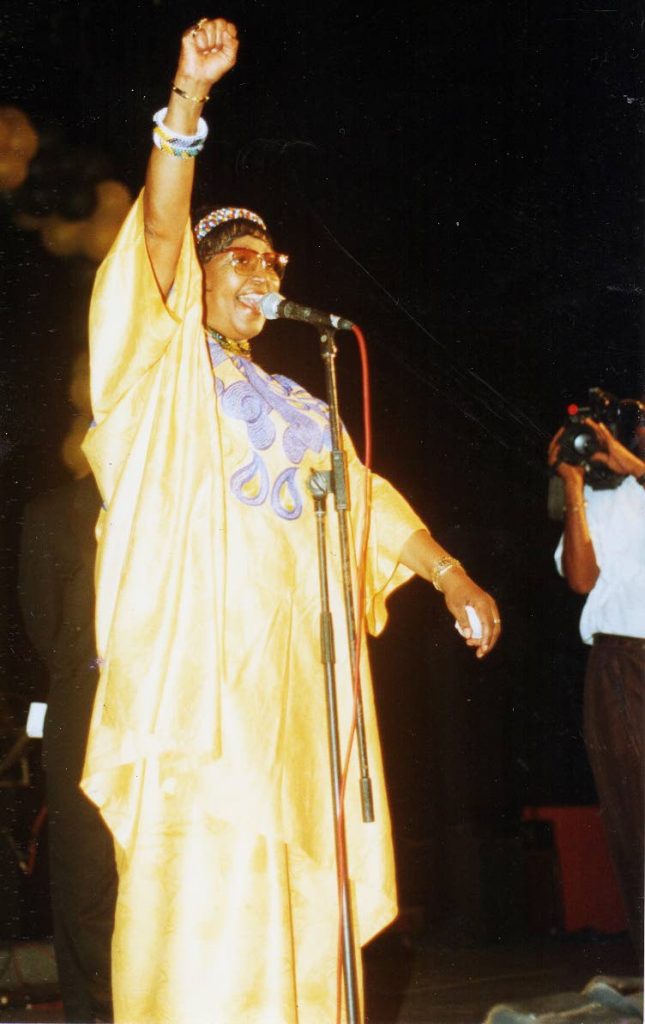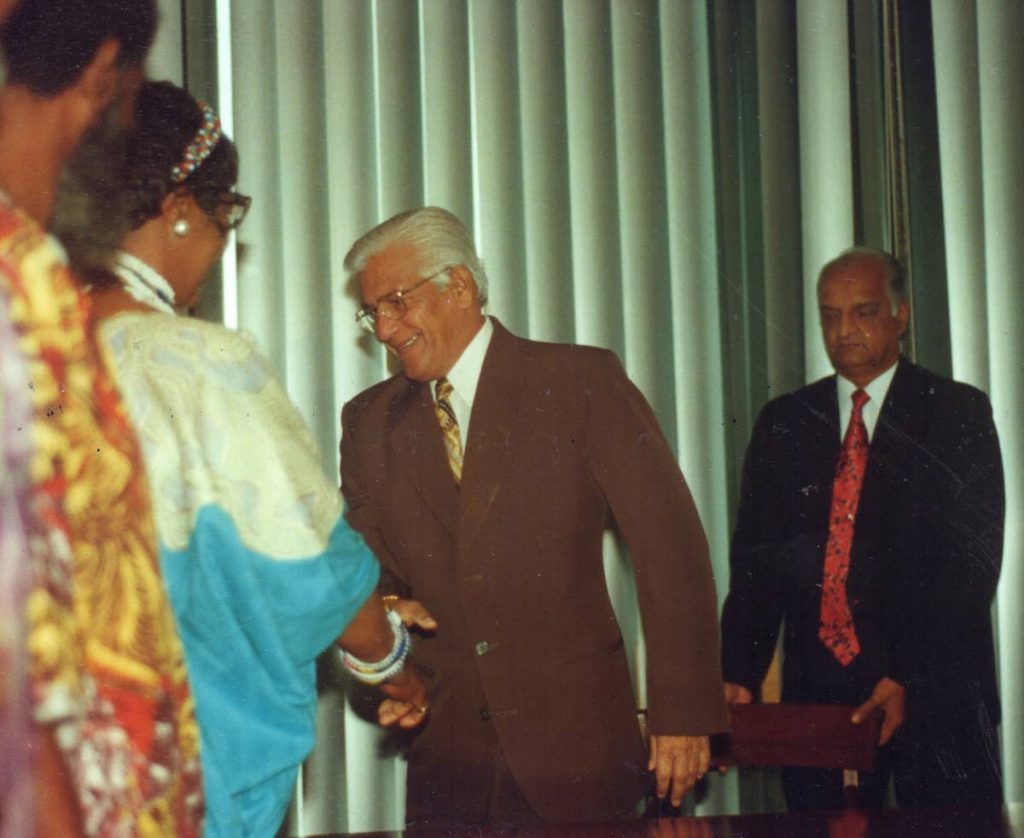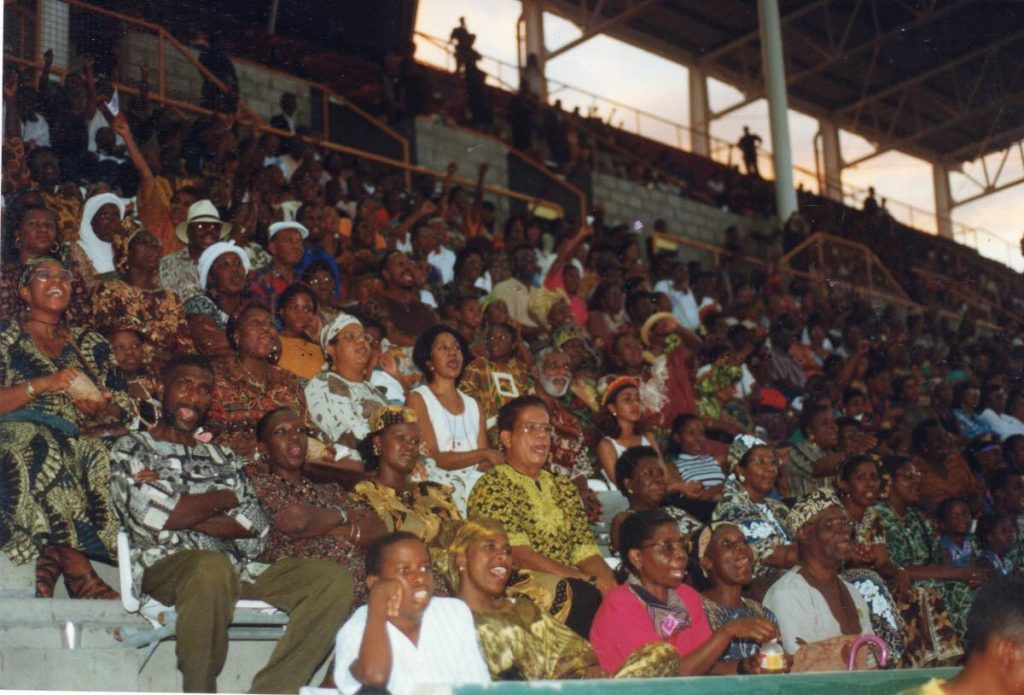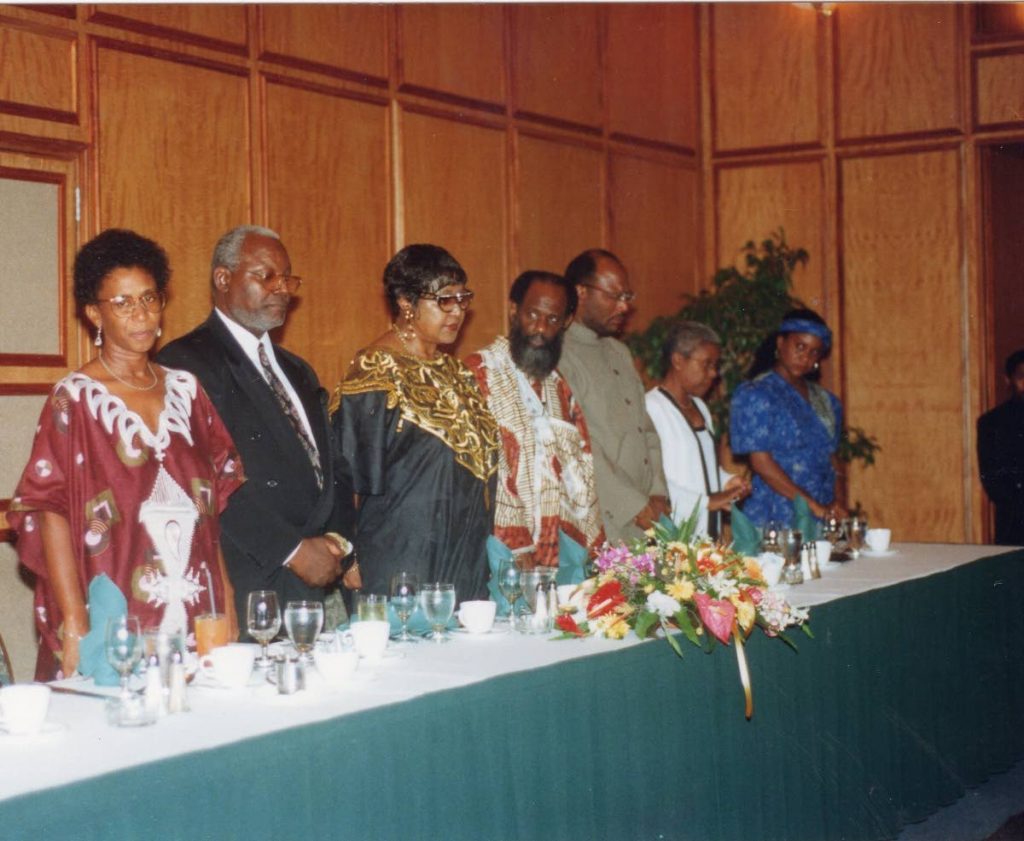Winnie Mandela, a special person

Twenty years ago, Winnie Madikizela-Mandela visited TT on the invitation of the Emancipation Support Committee (ESC).
News of Mandela’s death yesterday triggered memories for ESC Chairman Khafra Kambon of those few days back in June 1998, when he got to spend time with this, “very, very special woman.”
The former wife of South Africa’s first black president Nelson Mandela, died at the age of 81 in South Africa following a long illness which saw her in and out of hospital since the beginning of the year.
Speaking with Newsday yesterday, Kambon said, “Winnie’s humanism is what strikes you, in addition to her political commitments, her sacrifice, her passion for the struggle. That human touch is what made her a very unique person. I personally felt it very deeply when I heard she had died.”

Referring to Mandela’s work as an anti-apartheid activist, Kambon said, “This is a real loss to the world because Winnie carried the brunt of the struggle while Nelson Mandela was in prison. Anybody could have related to Winnie Mandela, she transcended organisations. I can only say good things about her. She was a very, very special human being.” Kambon recalled how a diabetic Mandela delayed her departure from a rally at the Hasely Crawford Stadium in Port of Spain in order to meet as many people as possible who had come to hear her speak that day. “Her warmth and the way she related to people was overwhelming. At the Trinidad rally – we had one in Tobago too – everybody wanted to talk to her. Winnie was diabetic and needed to eat on time, so we were trying our best to get her back to the hotel as scheduled but she prioritised meeting the people. She didn’t want anybody to feel left out.”

“Then, when we finally got back to the hotel, everybody (in the entourage) wanted autographs because after this, Winnie Mandela was leaving the country. We tried again to get her to eat but Winnie sat down for more than an hour greeting people, before she agree to eat. Winnie wasn’t just singing autographs, she was writing personal notes to each one of them. That’s what I mean by her having a human touch,” Kambon said.
During her time here, Mandela met with the then Prime Minister Basdeo Panday at his office in Port of Spain. She also met with officials from the Port of Spain City Corporation and the Tobago House of Assembly (THA). Another memorable moment for Kambon was when Winnie Mandela stepped out of her vehicle to meet the people who had lined the streets of Tobago, hoping to see her during her brief visit.

“Plenty people lined the streets that day. They were waving, hoping to see Winnie but the (convoy) was driving fast to the hotel. It was a bit hurtful because the people had come out to see her. Fortunately, the vehicles had to slow down to turn onto road where hotel was, so the people got there got to interact with her.”
“Winnie’s security came out, all concerned, because the crowd had come onto the road in hopes of seeing her but Winnie exited the vehicle she was in. She didn’t like this way of driving fast either, with windows up, not meeting the people.
As long as people were involved, you couldn’t hurry Winnie. The security were very concerned but she was not.
She was there, mixing and mingling with the people for a while before we continued to the hotel,” Kambon said. On behalf of his fellow ESC members, Kambon expressed condolences to Mandela’s family.


Comments
"Winnie Mandela, a special person"